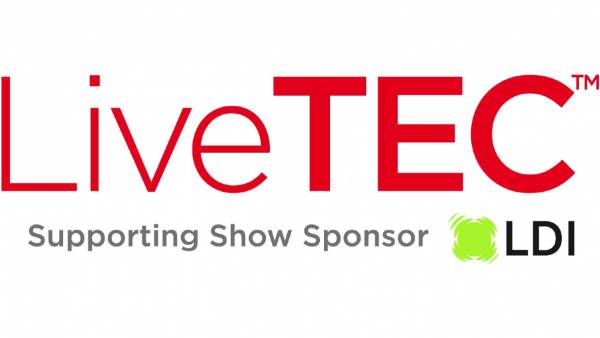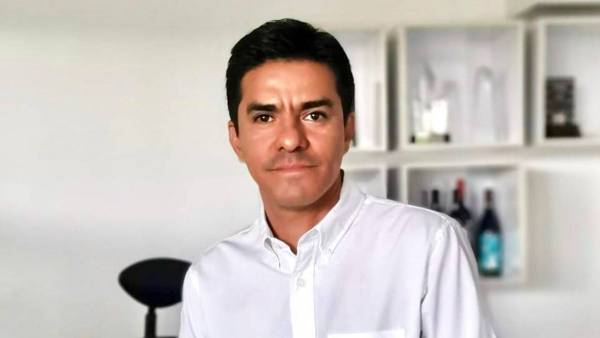 The award of the third private television channel is one of the decisions that the National Television Commission of Colombia could take in the remaining six months of management before its elimination.
The award of the third private television channel is one of the decisions that the National Television Commission of Colombia could take in the remaining six months of management before its elimination.
By Richard Santa
After nine attempts to eliminate the National Television Commission, CNTV, the highest regulator of television in Colombia, during its 20 years of operation, the congress of that country approved the elimination of the constitutional rank that sheltered it.
With this decision taken at the beginning of June, congress gave free rein for the Colombian government to eliminate the entity and delegate the functions it has to one or more other entities. For this, the Minister of Information and Communications Technologies of Colombia, TICs, Diego Molano Vega, set a maximum period of six months.
And it is that the CNTV became for the Colombian State one of the addresses with the highest annual operating cost, which is around $ 80,000 million, added to constant investigations for waste and irregularities in contracts advanced by the entity.
According to the arguments contained in the bill to eliminate the entity, presented to Congress by Senator Juan Fernando Cristo and promoted directly by the government, "the CNTV is the only regulator of the television service in the world that has constitutional status. This represents the biggest obstacle that has prevented Colombia and its ICT industry from finding an environment conducive to the strengthening of the convergent television service."
One of the most questioned points of the CNTV is the way its members are chosen. The five commissioners who come from: two the national government; one of the universities with communication faculties; one representative of the regional channels; and one representative of artists, journalists, viewers' leagues, librettists, producers and filmmakers.
This selection model was initially seen as democratic, in which all sectors participated. But not all the commissioners were people who had the knowledge to be in that entity and came more for political favors.
Industry Lag
In the bill presented by Senator Cristo, it is mentioned that the constitutional rank of the CNTV has made the television service in Colombia maintain an obsolete regime of concessions and with few results.
"Today the CNTV is 22 times more expensive for the State and industry. The achievements made in the implementation of its functions are insignificant. To cite just one piece of evidence, it is estimated that there are currently more than two million closed television subscribers who are being served by illegal operators and are not reported to them."
His management in favor of the development of public television in Colombia is also criticized. "Since 1991, with insufficient results, the CNTV has managed I have invested the resources of public television, which does not generate, it has simply been an administrator of the revenues that the television industry must allocate to this end."
Minister Molano Vega himself acknowledged that the model of public television in Colombia today, with the 11 channels it has today, is unsustainable.
Finally, the project argues that since 2000, around the world the traditional concept of television has been transformed into a much broader one that includes all the digital content that reaches users through multiple devices such as the computer and the cell phone itself, while Colombia continues to lag behind in this regard.
It points out that three regulatory models have been identified: "1. The single regulator model, responsible for all aspects of the sectoral regulation of any of the communications services; 2. The convergent regulator model that separates network regulation from content regulation; 3. The model of duplicity of regulators, prevailing in Colombia since 1991, which establishes a regulator for ICT services and another for television service".
What's next?
Minister Diego Molano Vega announced that during the second half of 2011 the new regulatory framework that will govern television in this country will be discussed in the Colombian Congress.
The idea of the government is that for the regulation of television and its content, an independent entity is created with tools to promote the development of the industry, but with little bureaucracy. That's why they've thought of a board of directors that has a salary per session they attend.
In addition, the Communications Regulatory Commission would assume control of the communications networks and the spectrum would be regulated by the National Spectrum Agency.
The discussion of this project is headed by Senator Eugenio Prieto Soto, who told TV Y VIDEO that it has a greater significance than is believed.
"In the end, this is going to end up being a media law. And what we have to avoid is opening the way for the State to try to impose censorship as has happened in recent years in Venezuela, Argentina and Ecuador. The current government will not do it, but we cannot leave that possibility open so that other future governments can do it," Prieto said.
He indicated that Congress and the government agreed on guiding principles on which the new television legislation in Colombia should be based. They are: defense of public TV, convergence and integration with ICTs, production and control of content, guarantee of equal access and pluralism of information.
In addition, territorial autonomy and democracy of local participation, autonomy -not independence- of the regulator, protection of users of services, regulatory framework of legal stability of investments in the sector, and have policies to promote the digital content industry.
But in Colombia there has been some criticism of this process. Some of them, made known in the Colombian media as indicated by the newspaper El Espectador in one of its editorials and by Senator Prieto himself, insist that the government could control and even censor the contents of television and the Internet.
In addition, they have described the process as improvised, because it is not defined who will assume the functions of the CNTV and that the speed of the legislative process was more to give a blow of opinion.
But Minister Molano Vega has repeated that the new regulation will not allow the contents to be in the hands of the government of the day and that what should be sought is "to move from a television with restrictive regulation to a deregulation of the industry so that there is more competition, more network coverage and more content."
BOX
Pending decisions
Because what was approved by the Colombian Congress stipulates that while the corresponding laws are processed, the CNTV continues with its functions, the five commissioners must decide what to do with the transcendental issues that are currently under discussion.
One of them is that of the third private television channel. In July 2010 the CNTV was going to award the third channel, but had to suspend the process because the Council of State indicated that when choosing the auction model to grant it, it could not be carried out with a proponent, as indeed happened.
The other two proponents that existed at the time withdrew denouncing irregularities and favoring one of the interested groups.
Another important decision is Colombia's Digital Terrestrial Television model. Although the CNTV chose the European DVB model, Colombia is the only country in South America that has it and voices have begun to be heard asking the government to study the decision again, which the commissioners oppose.
And this discussion has gained strength after Uruguay announced last December that it was reversing its decision to adopt the DVB model for the Brazilian SBTVD model, because Europe failed to comply with the investment agreements to which it had committed itself so that Uruguayans would accept its model.
The deadline for Europe to comply with the investments it committed to in Colombia expires in September, and added to the risk that it may remain isolated having the model different from that of the entire region, which the SBTVD chose, it would not be strange if the Colombian government also reversed.

























Leave your comment